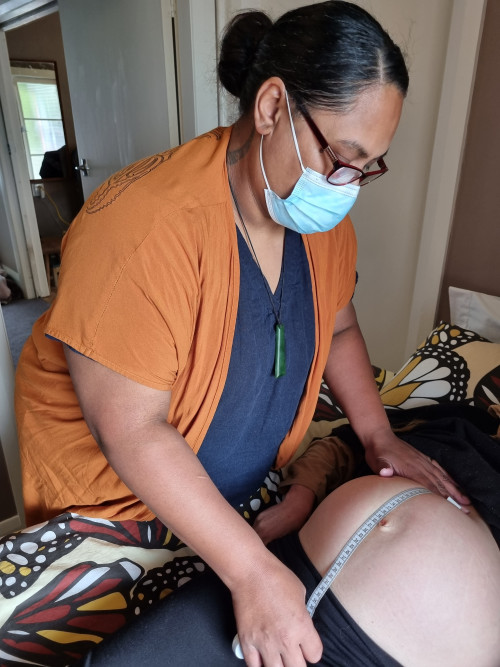
Three independent midwives opened a Hawke’s Bay midwifery practice, Tapuhi Kura, in March that is reintegrating Māori cultural practices into daily care.
Hawke’s Bay Lead Maternity Carer (LMC) Kiley Clark is one of them, who last year was covering a maternity leave placement at Hawke’s Bay District Health Board as a Māori Midwifery Consultant.
Kiley says, “The DHB leadership role enabled me to build the rapport and networks with other Māori midwives, including with Charlene Eparaima and Crissy Coromandel, and together the three of us started Tapuhi Kura.”
“Our main priority at Tapuhi Kura is caring for our whānau Māori, and trying to re-adjust some of the statistics and inequities that exist,” she says.
“Rightfully or wrongfully, they are definitely there, and Māori are trying to work in a system that wasn’t designed for us.”
To change that, the Tapuhi Kura LMCs are tackling academic differences by reclaiming practices such as the mirimiri, karakia and rongoa into their own daily care practices.
“Whether we learnt it from other Māori midwives or whānau, those are practices that we know about and engage in, but that are not in every LMC’s practice here,” Kiley says.
“So those are things that we have to actively work hard to reclaim, use, and legitimise the use of,” she says.
Tapuhi Kura operates out of clinics based in Flaxmere, Maraenui and Waipukurau.
It takes a more collective approach than the typical midwifery care model, Kiley says.
“We dissected the midwifery continuity model, so what that means is we break up who does what between three midwives. There’s nothing new about the way we work, it’s just that we are very collective. We have to hui and wānanga together so it works.”
Kiley says developing a community of Māori midwives is also important to tackle inequities.
“If we have a dedicated community of Māori midwives we will encourage others to step into that space.”
Kiley has 12 years’ experience in Hawke’s Bay and Auckland, both as a hospital and self-employed midwife.
“The DHB is great for camaraderie within the hospital, to upskill and build relationships with colleagues, and also for family circumstances. I like that in a DHB you can really upskill yourself and you’re not on call, whereas as an LMC you’re serving your community and can build strong relationships with māmā and whānau.”







Post your comment
Comments
No one has commented on this page yet.